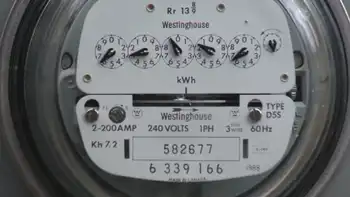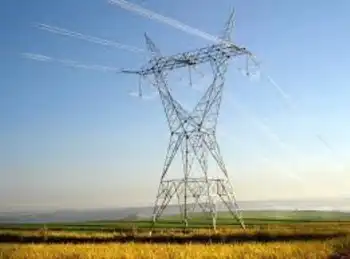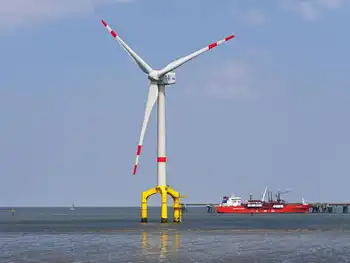Two of Wisconsin's 3 nuclear plants now closed
By Milwaukee Journal Sentinel
NFPA 70e Training
Our customized live online or in‑person group training can be delivered to your staff at your location.

- Live Online
- 6 hours Instructor-led
- Group Training Available
The shutdown is planned down time to refuel the reactor and replace the reactor's vessel head, or cover.
The other reactor at Point Beach is still generating at full power, but the nearby Kewaunee plant remains out of service due to an unplanned shutdown.
Wisconsin relies on its nuclear plants for 20 percent of its power supply, with coal-fired power plants accounting for nearly 60 percent. Shutdowns typically occur during the spring and fall to make sure the major power plants are available during the summer months.
The vessel head replacement at the Point Beach Unit 2 reactor is projected to cost $27 million.
The plant is run by Nuclear Management Co. of Hudson and owned by Milwaukee-based Wisconsin Energy Corp.
Kewaunee's owners, Wisconsin Public Service Corp. of Green Bay and Madison-based Wisconsin Power & Light Co., said last month they expected the reactor to return to service in time to be operating at full power by the middle of April.
More than 500 contractors will be at Point Beach for the shutdown to help Nuclear Management Co. personnel inspect and perform maintenance, company spokeswoman Sara Cassidy said. Point Beach employs nearly 700 people.
Last month, We Energies increased customers' bills by 4.8 percent to account for higher use of natural gas this year, including the need to replace electricity generated by Point Beach this spring and fall.
The second reactor at Point Beach is scheduled to be shut down this fall when another vessel head is replaced. Together, both shutdowns at Point Beach are responsible for one-fifth of the $114.9 million increase in prices, the utility said.
The recent increase added $3.34 a month to a typical residential customer's bill, bringing the monthly electricity charges to $72.31.
Meanwhile, another cog in Wisconsin's power infrastructure also went out of service, when a high-voltage transmission line connecting Minnesota and Wisconsin was knocked offline because of a pole fire.
A power pole east of Eau Claire caught fire the same day, and the 345,000-volt line is expected to remain out of service until 6 p.m. today, said Maripat Blankenheim, spokeswoman for Pewaukee-based American Transmission Co.
The simultaneous outages of both major power plants and a key power line importing electricity from other states are what energy industry leaders seek to avoid on hot summer days when electricity demand soars.











